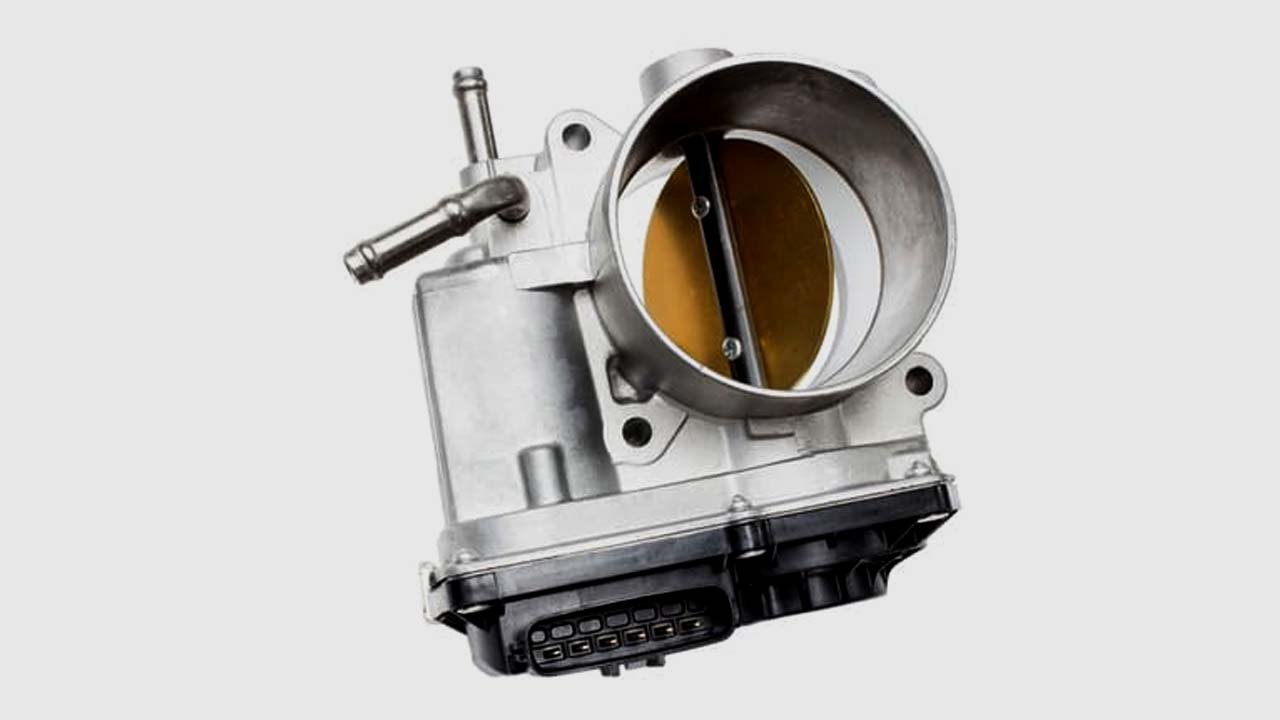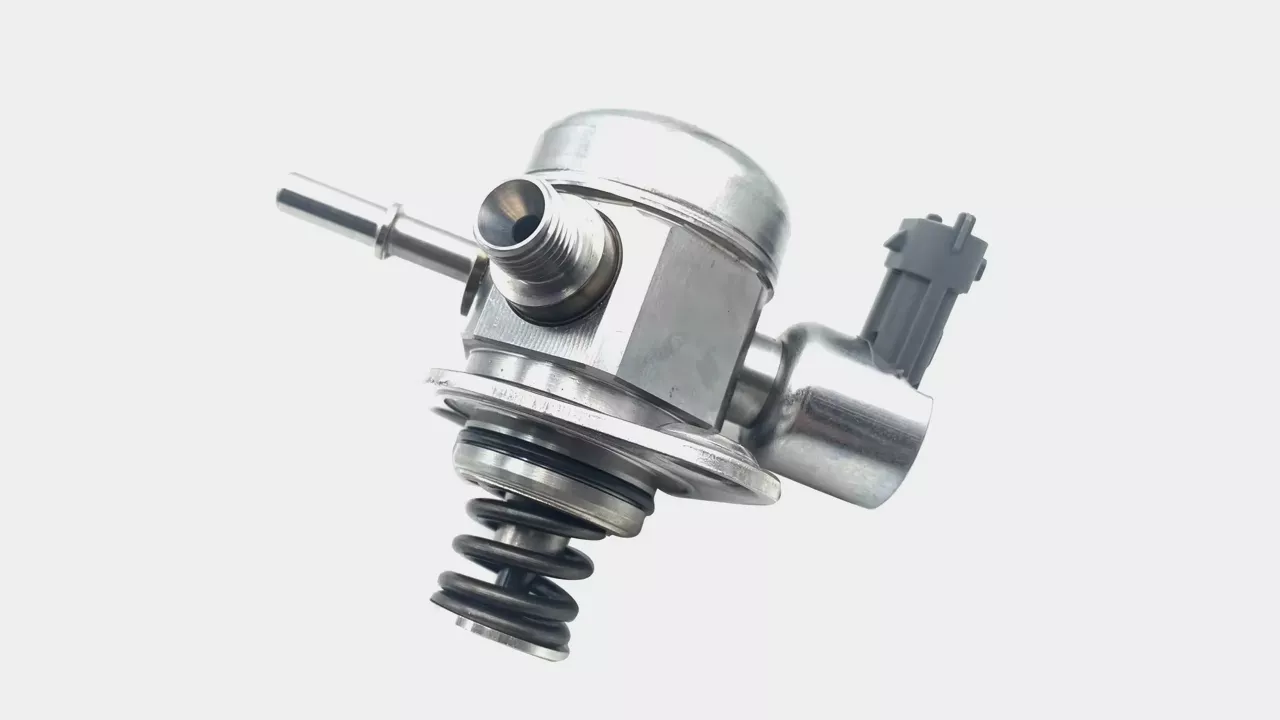The Ford Fusion is a popular mid-size vehicle that has dominated the market from 2005 to 2020. Fans say it was made for a refined ride.
The supporters like its cool car design and call it a good car because it is easy to ride and quite dependable.
The interior focuses on comfort. It also brings a lot of versatility to the table. This means everyone can get close to what they are looking for, from gasoline to gas/plug-in electric hybrid.
In terms of specs, the 2020 Ford Fusion S has four doors and five seats. It burns a combined 24 MPG and has a four-cylinder engine, which is considered optimal.
For example, the Ford Fusion is better than the Ford Taurus when it comes to economizing fuel.
Related Article: Best Ford Fusion Mods To Enhance the Overall Performance of Your Ride!
So, with all the accolades, why did Ford decide to discontinue the model? The company believed that it was the right time to put more focus on trucks and SUVs.
In 2023, Ford will bring back the Fusion, but it will face a lot of modification to find a spot in the lineup of SUVs. The third generation of Ford Fusion will have a starting cost of around $27,500.
Hand-Picked Content: Toyota Prius Mods That Are Functional And Elegant
While it is primarily a good car that does the job well, owners still have to contend with specific issues. Some are even wondering, do Ford Fusions have a lot of problems?
There are some common problems with Ford Fusion, but thankfully, solutions do exist to address them.
Is Ford Fusion A Problem Child or Dependable Ride?
Whether you’re considering a Fusion, already own one, or are wondering about Ford Fusion reliability, this post is for you. Do these cars live up to the hype, or are they secretly a headache waiting to happen?
The Fusion is a solid and dependable mid-size car, but it does have its share of commonly reported issues. It’s important to have a balanced perspective, so let’s check out the thirteen most frequent problems Ford Fusion owners have encountered. Knowing these potential pitfalls isn’t meant to scare you away, but rather to arm you with the information you need to make an informed decision – or to be prepared if you’re already part of the Fusion family.
Here are the top Ford Fusion problems reported by owners:
1. CD Player does not work

Sometimes CD players just refuse to cooperate—like, absolutely won’t even consider reading a CD. I’m talking about situations where they won’t even accept a disc, spit it back out, or decide they’re done producing sound altogether. You’re thinking, “Great, just what I need.”
If pulling the radio fuse for 15 minutes doesn’t wake it up, it probably means it’s time to call a pro. Have them run a diagnosis to see what’s going on in there.
Around 145 owners have actually brought this problem up—average mileage, hitting close to 93,234. It is common in models from ’06 to ’14. Diagnostic fees usually hover around $100, but if you’re talking full replacement on a 2008 Fusion? It’s going to run you a cool $700, taxes and labor thrown in, with the stereo alone costing around $425.
Then there’s one owner who shared a pretty frustrating experience, saying, “The radio display glitched out, and the battery started losing juice every single night. Even after replacing the battery, I couldn’t figure it out! The mechanic said the audio system was drawing nearly 3 amps while off—crazy, right? So now I’m left detaching the audio faceplate and unplugging the big connector whenever I park it.”
2. Swollen Lug Nuts

The lug nuts on the Ford Fusion have a tendency to expand beyond their original size. When this happens, the lug nut wrench won’t fit anymore, so the lug nuts have to be drilled out or removed. This swelling occurs when the lug nuts are over-tightened. To avoid this problem, always use a torque wrench to tighten the lug nuts. If you need to change a flat tire on the road, make sure to loosen and retighten the lugs to the proper specification as soon as possible.
According to RepairPal, models from 2006 to 2017 with an average mileage of 65K have witnessed this lug nut issue. The cost of lug nut replacement is about $200.
3. Transmission Fluid Leaks

Another common issue with the Ford Fusion is transmission fluid leaks. This happens due to a worn axle shaft seal within the PTU assembly.
The fluid can seep out around the seal as a result. Therefore, it’s crucial to check for any leaks from the axle shaft seal before purchasing a Fusion. Unfortunately, you cannot use any car hacks to resolve this issue.
4. Power Steering Issue

If you are driving slowly and your power steering fails, stopping the car to call for help might be annoying but feasible. However, if you are going fast, things can get dangerous rapidly.
The main thing to do is to try hard to steer the car in the right direction before you can reach an expert for guidance.
Reports for power steering failure concern some models more than others. To illustrate this point, there were 1530 complaints for the year 2010 model versus 110 for 2016. Here are the models that were mostly affected by this issue: 2010, 2011, 2012, 2013, 2014, 2015, and 2016.
The solution that the automobile manufacturer opted for was to recall 2011-2012 models that did not have a 3.5L engine.
There was also a recall for 2013-2016 models due to a possible electronic power steering failure linked to different contaminants and road salt.
However, this recall mostly had to do with certain regions where roads are salted in winter. A VIN check can tell you if your vehicle is featured on a recall list.
It will cost you close to $400 to get the issue fixed if it involves a pump replacement. Most technicians can take care of this problem in two hours. However, in some cases, the price tag can go up to $1,600.
According to reports, the issue tends to surface when the vehicle hits 107,000 miles. This is the average for owners who filed their complaints.
While a power steering failure is on top of the Ford Fusion’s known issues, there are others that can be as inconvenient.
5. Squeaks and Creaks Over Bumps and When Turning
Noises like squeaks and creaks that occur when driving over bumps or making turns can stem from several common sources and need precise identification. One potential issue could be weld problems on the lower control arms, which may lead to noise problems and necessitate the use of repair kits provided by Ford for the lower control arms.
Another possible cause could be the jounce bumper (also known as a bump stop) rubbing against a dry strut plate, resulting in a scraping noise from the strut area. In such cases, the strut assembly should be carefully taken apart to lubricate the jounce bumper before reassembly.
Around 477 people reported this problem on RepairPal. Models from 2006 to 2015 are most affected with an average mileage of 99K. The repair cost of this Fusion problem varies according to the real reason behind squeaks and creaks. According to an owner, he was asked to dish out $350K to fix a hole in his front axle near the passenger’s side tire boot.
6. Airbag Problems

Airbag issues are among the most significant sources of complaints for Ford Fusion owners.
Those problems grabbed headlines, and the Takata airbags were mostly blamed for the things that went wrong. A recall addressed the matter for models from 2006 through 2012.
The degradation of a propellant led to the explosion of the airbags, which caused the firing of sharp metal fragments. Serious injuries and even deaths have been reported in relation to these issues.
This is the second Ford Fusion problem with the most complaints, and because of its severity, it is best to rely on an expert to solve the matter.
Moreover, like in the previous case, a VIN check can reveal if the vehicle is on the list of recalls. In short, those models — 2006, 2007, 2008, 2009, 2010, 2011, and 2012 — should receive more attention because of airbag problems.
A replacement can go anywhere between $500 and $1,0000.
7. Hard Shifting And Slipping Gears

The 6-speed automatic is well-known for these problems, which are typical Ford Fusion complaints.
These problems usually occur in cars that haven’t been well-maintained. Neglecting transmission fluid changes is a primary cause. Therefore, ensure you find a car with regular fluid changes and smooth shifting.
The average cost of transmission fluid change typically ranges from $100 to $300 depending on the location and service provider. For transmission repair, you might have to dish out around $1,250, while the replacement can cost over $6,000 (quoted by a mechanic for a 2019 Ford Fusion, but this can vary widely based on the model year, transmission type, and location).
8. Head Gasket Failure or Engine Failure

This third issue primarily concerns models from 2013-2019. These Ford Fusion models have 1.5 L, 2.0 L EcoBoost, and 3.5L V6 Duratec engines. When there is a head gasket failure, some owners notice the coolant leaking and the engine misfiring. One owner said on Reddit while discussing about his Fusion Sport variant, “The biggest issue is when the water pump decided to fail.”
Those signs point to a head gasket that is no longer functioning. This should be handled as soon as possible because it can lead to engine failure.
Many drivers have said that in such a situation, there is a warning from the check engine light. However, some owners have said they never got the light to come on.
The simple solution to this problem is the replacement of the head gasket. However, it is not always possible if engine failure is involved, and this can get very costly.
The replacement cost for a Ford Fusion head gasket ranges from $1,600 to $2,100.
9. Service Brake Problems

This is a well-known issue that affects Ford Fusion models from 2006 through 2012. The braking problems can take different forms. Here are a few indicators that you are dealing with braking issues.
If you have to apply additional pressure for the vehicle to stop, it might be time to check your brakes. In some cases, the car only stops long after you press the brakes.
Owners have reported that the brakes would fail while driving, and the pedal even ends up on the floor. All those occurrences must be addressed seriously because they can lead to crashes and put you in danger.
A VIN check will let you know if your model was recalled. To fix those problems, there was a recall of Ford Fusion models from 2006 through 2010.
The valves of the ABS Hydraulic Control Unit were blamed for the braking issues. Some owners have also pointed the finger at the master cylinder for the braking problems on those models of Ford Focus.
It can cost up to $800 to fix the braking problems.
10. Throttle Body Failure

A faulty throttle body can be responsible for your car stalling, jerking, and hesitating while driving. The Ford Fusion models that have received the most complaints for throttle body failure are from 2010 through 2016.
The throttle body, which is a butterfly valve, is there to regulate air intake to the engine. You need to have enough air for the power to be generated.
In short, if your car is lacking power and having trouble accelerating, it might be time to replace your throttle body. This move will cost you up to $1,000.
11. Transmission Problems

This issue was most common with the second generation of the Ford Fusion. This good-looking car from Ford was produced from 2012 to 2020 and remains relatively new. While transmission issues are highlighted, it’s worth noting that owners of Ford Fusion Hybrid models may experience different, or fewer, transmission-related problems due to the nature of hybrid powertrains.
12. Bushing Issues

Bushing failure is an issue that has affected Ford Focus models from 2013 through 2016. The problem is used to prevent the vehicle from switching to the desired gear.
The source of this issue is the bushing that connects the shifter cable to the transmission not functioning correctly. Up to 3 million Ford Fusion owners faced this problem.
In some cases, the car has stopped working. Ford recalled close to 500,000 vehicles because of bushing failure. The 1.5 L, 1.6 L, and 2.0 L engines were directly linked to this recall. The same goes for the 6F35 and eCVT transmissions.
Also Read: What The Heck Are Continuously Variable Transmissions?
Ford replaced the under-hood shift bushing and added a cap to protect the shift bushing cable. This was done for free.
In clear, it is important to replace your bushings rapidly; doing this will pay off in the long run.
13. EGR Problem
The EGR, or exhaust gas recirculation, plays a role in emissions control. One day, you might notice a check engine light pop up. Plugging in a scanner reveals a P400 code. Now, two things could be happening. First scenario—there’s nothing visibly wrong. That is actually due to software that needs updating where the computer thinks there’s a problem but there really isn’t an actual problem so it triggers that check engine light, gives you a code but you find nothing.
The other way that it can go is, of course, there is actually a problem. Whether it needs a software update or not, it detects a problem, so you go in there. A lot of times, the EGR passages can get clogged up with carbon and just build up over time especially since these are turbocharged engines. If oil sneaks by that turbo or gets burnt and gets sucked back in through the EGR that can cause problems.
So either way, whether it’s software confusion or real blockage, the solution is straightforward. Diagnose, clean (if necessary), and reset. Then, back on the road with a smoothly running engine—until next time.
14. Fuel delivery or fuel-pump failures

There are also reports of Fusion fuel delivery issues leading to stalling and loss of power. The fuel pump or fuel module tends to break down and cease providing a continuous supply. Drivers experience a loss of power immediately when cruising. The engine may sputter or run rough at higher speeds and long cranks or hard no-starts are common. Another indication is a whining noise around the fuel tank.
There are complaints regarding certain second generation models, particularly 2013 and 2014, and these complaints are likely to be noticed after high miles. Here we face a safety risk with a failing pump stalling the car unexpectedly.
Repair costs vary. You have to dish out a few hundred dollars for a simple pump or module swap. Work on high-pressure systems and associated diagnostics may drive the bill into the low four figures. Occasionally, it is the sensor or wiring, not the pump that is the source of the problem and hence testing initially can save money.
Ford recently recalled a high number of vehicles in the US over fuel pump defect. Check VIN recall at NHTSA prior to your purchase. For surging, long cranks, or stalls, we advise getting a professional fuel-pressure test and a code scan right away.
Is Ford Fusion a Reliable Vehicle?

Buying a car is an important decision. There are a lot of elements to take into consideration. Ford Fusion is generally considered a good car because it is reliable.
The life expectancy for a Ford Fusion is about ten years on average. Obviously, different factors play into this. If you pay close attention to certain details and take good care of the vehicle, it can reach up to 15 years.
Experts say that luck also matters in this situation because avoiding major problems is essential. All the success stories about Ford Fusion generally involve the maintenance history.
Ford Fusion is trusted for many reasons. The materials that are used on these models are some of the best in the automobile industry. Moreover, the mechanics handling the maintenance on these cars really know what they are doing, and they have a lot of experience.
Another critical element in favor of the Ford Fusion is the warranty, which is quite comprehensive.
How Many Miles Do Ford Fusions Last?
Ford Fusion models can last up to 200,000 miles. However, like for the life expectancy portion, maintenance is key. If done well, those miles can quickly go up to 300,000. Driving in a smooth fashion can be helpful to get there.
Ford Fusion Years To Avoid
This good looking car has been on the market for a while. Some years have been good, and others not so much. Based on the numbers from Car Problem Zoo, the years 2010, 2011, and 2013 are among the Ford Fusion models with the most problems.
However, 2007 and 2008 are the two years to really avoid.
For 2007, the interior design left a lot to be desired, and there needed to be more power. Moreover, you have to couple all of this with a bumpy ride. 2008 followed the same patterns as its predecessor and is considered one of the most unreliable vehicles on the crowded market.
Here is a list of the worst Ford Fusion models:
- 2007
- 2008
- 2010
- 2011
- 2013
Car Problem Zoo lists 2020, 2018, and 2019 as the years with the least reported problems.
Harsh or Delayed Shifting of Automatic Transmission
Thousands of Ford Fusion owners have voiced concerns on RepairPal, with over 1,100 reporting issues of “harsh or delayed shifting” in automatic transmissions. From 2006 to 2018 models, averaging around 80,000 miles, 1,174 owners encountered shifting problems.
Symptoms include rough shifts, delays, and high revving, sometimes failing to shift gears. Repairs vary from software updates to costly transmission rebuilds, with valve body replacements priced at $900 to $1,400, and rebuilds ranging from $2,500 to $3,500. Early on, software upgrades may suffice, but as mileage accumulates, internal damage becomes likely. Ensuring the latest software updates post-repair can help mitigate future issues in these Ford Fusion transmissions.
Squeaks, creaks, leaks, and other dreadful clatters
As mileage increases, owners encounter more issues like squeaks, creaks, and leaks. RepairPal lists 477 complaints of creaking noises and 205 reports of transmission oil leaks. Both automatic and manual Fusion models report transmission leaks, typically around 76,000 miles, stemming from worn axle shaft seals, requiring you to understand the working of car axles. Squeaks and creaks, typically at 100,000 miles, may result from weld issues on lower control arms or a jounce bumper rubbing against a dry strut plate. This affects models from 2006 to 2015, with repair costs ranging from $100 to $250. Diagnosis and repair, including lower control arm repair kits from Ford, are essential to address these issues.
Bottom Line
The Ford Fusion is a pretty decent car if you value reliability. As it gets ready to make its comeback, owners appreciate how most of the Ford Fusion problems were handled with calm and precision.
While the models may be expensive, they are very stylish and tend to respect the standard rules in terms of safety.
The competition in the sedan market is fierce, but the Ford Fusion has nothing to be ashamed of.
FAQs
The Ford Fusion is a pretty solid car, all things considered. Most folks say it holds up well over time. Why? Well, a few reasons. Built with decent materials, designed by experienced hands, and backed by a warranty that isn’t too shabby. Sure, like any car, it’s got its share of problems. But most of those are known issues with easy fixes. If you keep up with maintenance, odds are, your Fusion is going to treat you right.
Now, if you’re looking at buying one, some years shine brighter than others. The newer ones—2018, 2019, and 2020—tend to give folks the least headaches. Meanwhile, the older ones are not always a great bet. 2007, 2008, 2010, 2011, and 2013 models come with some trouble spots. Especially in 2007 and 2008. People complain about how they ride, and the interior is not Ford’s best work.
Want to keep your Fusion running smoothly for years? Easy. Do regular oil changes, check those fluids, and follow the service schedule. If something feels off, don’t wait—fix it. And the way you drive matters more than you think. Treat it right, and it’ll go the distance.
